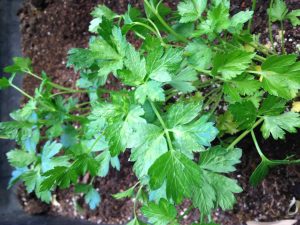Pepper Companion Plants
Companion planting in the garden may serve a range of purposes, which range from maximizing backyard space to bringing beneficial insects and pollinators to luring insect pests apart from other food crops. Here are a few excellent options for companion plants.
In this post we will tell you some things about Pepper Companion Plants. Because many people like to plants paper. Pepper Companion Plants are very interesting planting idea. There are many other facts about Pepper Companion Plants.
Companion planting, or group complementary plants together in the backyard to benefit each other, can be achieved for various reasons, such as to provide shade or a breeze barrier to other crops, or to cover the surface of the soil together with edible plants to crowd out weeds, or even to help boost the growth, flavor, or yields of food crops.
Some sources disagree on which crops must be grown together as companions (for example, beans and peppers), and companion crops for peppers are not compatible with one another, so if you are unsure, it’s best to do some extra research before planting.

Bad Companion Plants for Paper
Here are given some bad paper companion plants:
Beans (mainly hot peppers)
Sweet and bell peppers don’t mind legumes, but spicy peppers particularly need to be stored away from all types of beans.
Fennel
Not so much likes to grow near fennel, and peppers are no different. Keep this one in another bed.
All Brassicas
Peppers do not like being implanted near brassicas. Including broccoli, cauliflower, kale, Brussels sprouts, and some others in this plant family.
Potatoes
Although peppers grow well with other nightshades, such as tomatoes and eggplant, they ought to be stored away from berries. This prevents the spread of disease into your garden. Also be sure to keep at least two years between planting pepper and potatoes in precisely the exact same bed.

Good Companion Plants for Paper
Here are given some bad companion plants for paper:
French Marigolds
Marigolds show up in almost all companion planting lists, and for good reason. They’re great at repelling squash insects, soil nematodes, potato bugs, and more. I suggest planting marigolds through your garden beds. French Marigolds are best vegetable for Pepper Companion Plants.
Parsley
Parsley is a great herb companion plant to your own peppers. It will bring in predatory wasps (and other valuable insects) that help control aphids in your garden. Allow the skillet blossom for the biggest benefits.
Nasturtium
Nasturtium is just another flower that lands on many companion planting lists. Its advantages include deterring aphids, squash bugs, olive oil, and whiteflies. Plus, you can add the blossoms to your salads alongside the peppers.
Garlic
Garlic is a great pest management companion for peppers.

Dill
Dill, such as parsley, will attract pollinators and deter pests such as the spider mites which may ruin your pepper plants.
Geraniums
Geraniums are a terrific trap crop for Japanese beetles. The beetles will be paralyzed after ingesting the leaves of geraniums, giving you a chance to pick them off easily. Geraniums are very useful for Pepper Companion Plants. Geraniums also repel cabbage worms.
Dust your crops while they are little, up till they start to flower. Once your peppers have flowered your pepper plants should be strong enough to fight flea beetle by themselves.
Pepper Planting Tips
- Set your pepper seedlings out after all danger of frost is past and the soil is warmed and days are shining. Peppers grow well in containers, pots, raised beds and in-ground gardens.
- Plant peppers 24 inches apart allowing them space to grow. Space pops 12-to-24 inches apart.
- Water pepper transplants immediately and make sure you keep soil uniformly moist until plants are well recognized. Peppers need about two inches of water per week, and more when summer days are hot and arid. Don’t enable pepper plants dry out between watering.
- Surround pepper plants with stakes or provide a tomato cage to support the plant and keep the weight of the peppers as they mature.
- Although peppers are self-pollinating, they’ll also cross-pollinate. Various kinds of peppers should be isolated from one another in case you would like to save the seeds for planting next season. They’ll cross-pollinate if intermixed.

Related Posts
If you are really enjoyed from this post you can share this article to your friends and your Facebook, twitter, Pinterest, and other accounts. We will thankful to you!
Here are some related posts that you can read:
What is Nuts? And Types of Nuts
Uses and Benefits of Potash Herbs
10 Most Popular Chinese Dishes
5 Effects of Fast Food on the Body
What is junk food? and why it is harmful for your health?
Top helpful Facts about your Healthy Living




